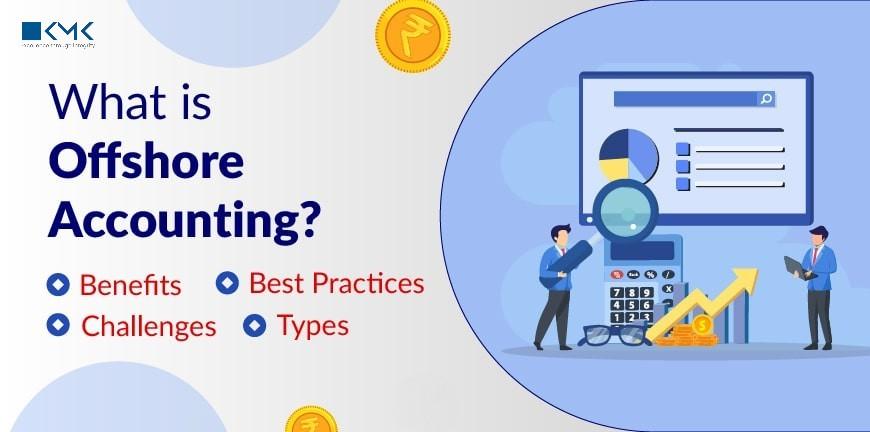Offshore Accounting Trends for 2025: What to Know

The business landscape is evolving faster than ever, and financial management is no exception. For U.S. companies, cost pressures, global competition, and the need for efficiency are driving a significant shift toward offshore accounting & taxation services. Once considered a cost-cutting strategy, offshore solutions are now a core component of modern finance strategies—helping businesses streamline compliance, gain access to expertise, and adopt the latest technologies.
So, what trends should U.S. businesses keep an eye on in 2025 when it comes to offshore accounting? Let’s explore.
Why Offshore Accounting Matters Today
Before diving into the trends, it’s important to understand why more U.S. businesses are turning to offshore models. Offshore accounting offers:
-
Access to skilled professionals at competitive rates
-
Scalability to meet changing financial needs
-
Round-the-clock operations across time zones
-
Compliance expertise with international and U.S. tax laws
These benefits make offshore solutions more than just a cost-saving measure—they’re a growth enabler. For many businesses, offshore accounting & taxation services are helping strike the perfect balance between efficiency and compliance.
Key Offshore Accounting Trends for 2025
1. Rise of AI and Automation in Offshore Services
Artificial intelligence (AI) and robotic process automation (RPA) are transforming financial operations. Offshore providers are increasingly adopting tools that:
-
Automate invoice processing and reconciliations
-
Reduce errors in financial reporting
-
Deliver real-time analytics and forecasting
For U.S. businesses, this means outsourcing partners are not just handling routine tasks but also providing smarter insights.
2. Expansion of Taxation Support Services
Tax compliance in the U.S. is becoming more complex with frequent changes in regulations. Offshore teams are stepping up by offering end-to-end tax management—from filing and reporting to advisory services.
In 2025, expect more outsourcing firms to specialize in:
-
International tax compliance
-
Cross-border transaction support
-
Transfer pricing strategies
This expansion ensures that U.S. companies with global operations stay compliant while reducing risk.
3. Focus on Data Security and Compliance
With financial data being highly sensitive, security remains a top concern. Offshore providers are investing heavily in cybersecurity measures such as:
-
Multi-layered encryption
-
Strict access controls
-
Regular compliance audits
For U.S. businesses, this trend provides reassurance that their data is protected according to international standards, making outsourcing a safer option than ever before.
4. Hybrid Outsourcing Models
In 2025, more companies will adopt hybrid models that combine in-house and offshore teams. For example:
-
Routine bookkeeping handled offshore
-
High-level financial planning managed in-house
This hybrid approach allows U.S. businesses to benefit from cost efficiency without sacrificing strategic control. It also creates smoother collaboration between finance leaders and outsourcing partners.
5. Greater Use of Cloud-Based Platforms
Cloud accounting is now the standard in offshore services. By integrating with platforms like QuickBooks, Xero, and NetSuite, offshore teams provide U.S. companies with:
-
Real-time access to financial data
-
Seamless collaboration across borders
-
Transparent workflows and reporting
In 2025, cloud adoption will only grow stronger, making offshore accounting more efficient and accessible.
Benefits of Embracing These Trends
Adopting offshore accounting in 2025 comes with several advantages for U.S. businesses:
-
Cost Reduction – Lower labor and infrastructure expenses
-
Expertise Access – Tap into specialized tax and compliance knowledge
-
Time Savings – Free internal teams for strategic priorities
-
Scalability – Adjust resources quickly based on growth or seasonal demand
-
Global Competitiveness – Leverage 24/7 operations to stay ahead
By aligning with these trends, companies can focus on innovation and expansion while outsourcing financial complexities.
Challenges to Consider
Of course, outsourcing isn’t without its challenges. U.S. businesses must prepare for:
-
Cultural Differences – Communication styles and time zones may require adjustment
-
Integration with Existing Systems – Ensuring offshore teams align with in-house processes
-
Vendor Selection – Choosing a trustworthy provider with a proven track record
Proactively addressing these concerns helps businesses maximize the benefits of offshore accounting.
The Future of Offshore Accounting & Taxation Services
Looking beyond 2025, offshore accounting is expected to become even more strategic. We’ll see:
-
Predictive Analytics – Offshore teams using AI to forecast market and tax trends
-
Blockchain Integration – Strengthening transaction transparency and audit readiness
-
Niche Specializations – Providers focusing on industries like healthcare, retail, and technology
For U.S. businesses, this means offshore partnerships will evolve from being purely operational to becoming innovation-driven, providing both compliance and competitive advantages.
Final Thoughts
The accounting function is no longer just about balancing books—it’s about driving strategy, ensuring compliance, and leveraging technology for growth. In 2025, offshore accounting & taxation services will continue to transform how U.S. businesses operate, offering smarter, more secure, and more scalable financial management.
- Art
- Causes
- Crafts
- Dance
- Drinks
- Film
- Fitness
- Food
- Παιχνίδια
- Gardening
- Health
- Κεντρική Σελίδα
- Literature
- Music
- Networking
- άλλο
- Party
- Religion
- Shopping
- Sports
- Theater
- Wellness


